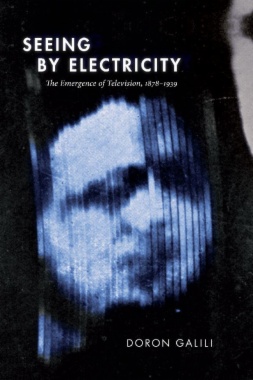Already in the late nineteenth century, electricians, physicists, and telegraph technicians dreamed of inventing televisual communication apparatuses that would “see” by electricity as a means of extending human perception. In Seeing by Electricity Doron Galili traces the early history of television, from fantastical image transmission devices initially imagined in the 1870s such as the Telectroscope, the Phantoscope, and the Distant Seer to the emergence of broadcast television in the 1930s. Galili examines how televisual technologies were understood in relation to film at different cultural moments—whether as a perfection of cinema, a threat to the Hollywood industry, or an alternative medium for avant-garde experimentation. Highlighting points of overlap and divergence in the histories of television and cinema, Galili demonstrates that the intermedial relationship between the two media did not start with their economic and institutional rivalry of the late 1940s but rather goes back to their very origins. In so doing, he brings film studies and television studies together in ways that advance contemporary debates in media theory.
- Cover
- Contents
- Acknowledgments
- Introduction
- PART I: Archaeologies of Moving Image Transmission
- 1. Ancient Affiliates: The Nineteenth-Century Origins of Cinema and Television
- 2. Severed Eyeballs and Prolonged Optic Nerves: Television as Modern Prosthetic Vision
- 3. Happy Combinations of Electricity and Photography: Moving Image Transmission in the Early Cinema Era
- PART II: Debating the Specificity of Television, On- and Off-Screen
- 4. Cinema’s Radio Double: Hollywood Comes to Terms with Television
- 5. “We Must Prepare!”: Dziga Vertov and the Avant-Garde Reception of Television
- 6. Thinking across Media: Classical Film Theory’s Encounter with Television
- Conclusion
- Notes
- Bibliography
- Index
- A
- B
- C
- D
- E
- F
- G
- H
- I
- J
- K
- L
- M
- N
- O
- P
- Q
- R
- S
- T
- U
- V
- W
- Y
- Z

